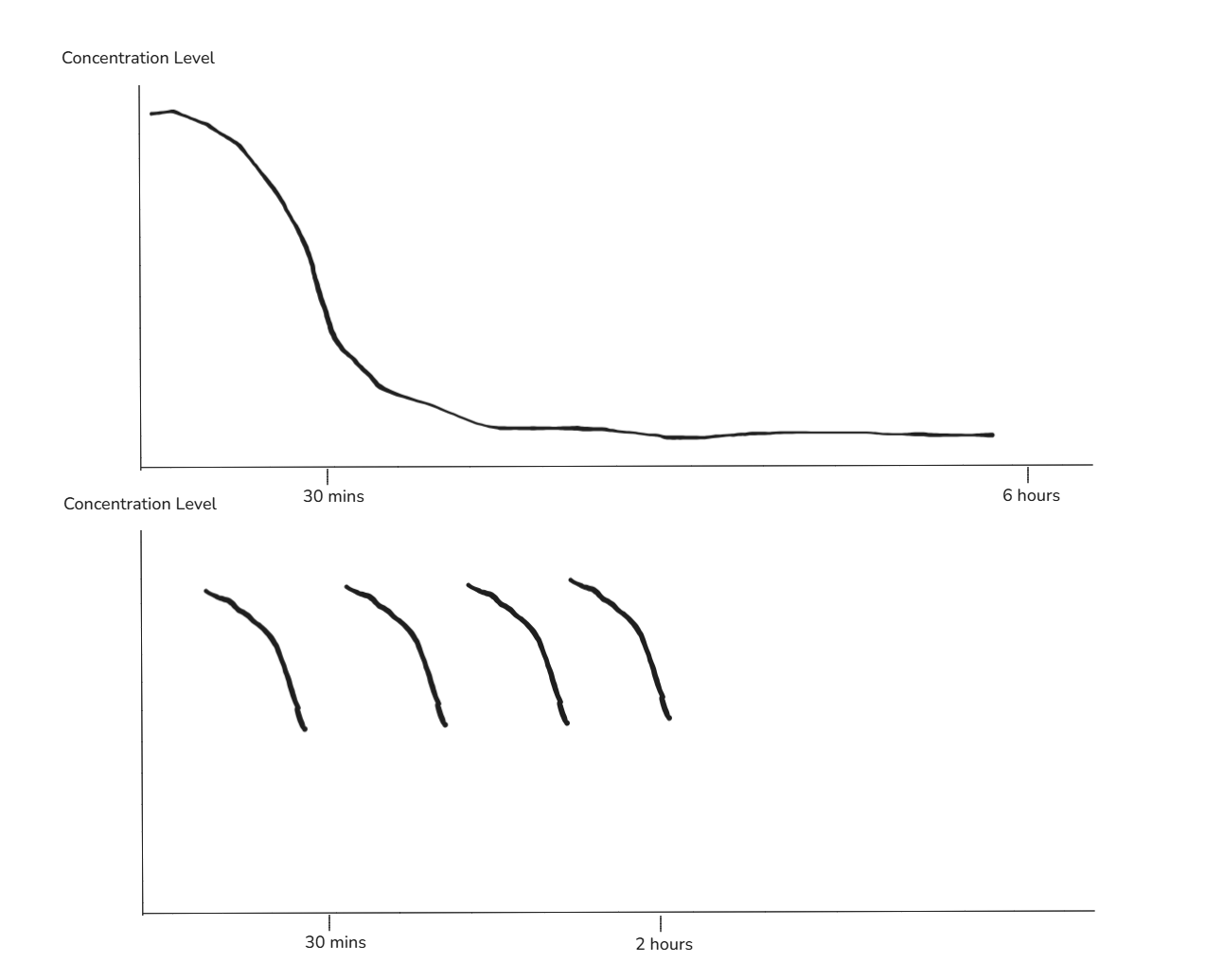
Many people think learning is a quite daunting process and either they are good or bad at it.
Fortunately, this is not true (just as most beliefs), and learning can be done effectively with the right method. When we learn something, it sticks. If you forget, then you are not learning. You might instead be studying, you'll understand the difference soon.
Preparing for Exams
It is too common to see students suffering trying to grasp some concepts but still failing their exams whereas some have exceptional grades. It is not that others have some rare innate talent; they just have the right approach. This situation is analogous to the following: two people are given seesaws to fell trees. Both people have 6 hours to get the job done. One gets to work immediately and sweats hard at the task while the other spends the 1st 4 hours sharpening the seesaw before working the last two hours. As a result, the 1st one sweats a lot and might not accomplish the work whereas the other sweats less and gets the job done.
The 1st Law: 1+1=2
No matter who does it, the result will be the same. Don't get trapped in the false belief that you are not intelligent/talented enough to do something particular. Nothing is new under the Sun (Ecclesiastes 1:9). The same way others succeed or fail at something, the same way you will succeed or fail at it if you do like them.
The 2nd Law: Purpose = Efforts
Why do you want to learn, curiosity, to pass exams? The purpose is very important in everything you do. Here, we can break down the process in two main routes: studying—the less beautiful—and learning—the beauty.
The Less Beautiful
There is nothing wrong with studying and having A-grades. It's just less beautiful than understanding physics and developing the theory of general relativity like Einstein did.
So how do we study?
Before getting to the how, like I said before, why do we study? We study to understand some phenomena, make predictions, and mostly pass exams.
Exams are like the physical world in a much smaller scale: questions (matter) are neither created nor destroyed but are converted from one form to another. So you just have to get acquainted to the questions and you'll do fine like Alice in the wonderland.
What You Should NOT Do!
1) Sleeping less than 8 hours a day:
Man, don't do that! The consequences can be more terrible than you think. Check my article on the consequences of sleep deprivation.
2) Cramming:
Read your textbook and try to remember everything, then go for your exams. You might answer some questions but many will look like aliens.
This method does not work because it is like you've walked through a whole town or towns (chapters) and someone asks you the location of a particular shop. Odds are you will not remember exactly where the shop is found or if the shop even exists. You wasted your time walking under the scorching sun for nothing.
What You SHOULD Do
1) Skimming:
Since you can know which shop (questions) they will ask you in advance, why bother walking the entire town (chapter) like a zombie? You should know what you are looking for; to do this, get past questions from the web or pamphlet and skim through them. As such, you'll prepare your brain for what to look while reading.
2) Visual Reading:
Understanding what you read permits you not to read same stuffs over and over. So understanding what you read should be your primary goal.
Do you find it difficult to remember scenes of an interesting movie? That's how proper reading is: like a movie. You've probably heard that an image is better than 1000 words, that's true.
This is how you should proceed to better your reading:
- At the beginning of each chapter, get visual clues of what you are going to read. Where do you get those? Check on YouTube, in your textbook, or whatever the place.
- Make sure you understand every word in the text. When someone writes a book, he or she expects the reader to understand what she has written before moving to the next line. As such, a big mistake many students make is to skip parts of chapters they don't understand—after all, their objective is to finish the chapter as quickly as possible. As a result, they find it hard to grasp the full content of the text—and they waste a lot of precious time.
3) Grade-saving breaks:
Next point you have to consider is that we are most concentrated during the 1st 30 mins of reading. What happens next is that we lose concentration. So as a thumb of rule, take a 5mins-funny break after every 30mins interval. This revives concentration. In contrast, students who try to digest material in 6 straight hours are most of the times wasting their time.
The two curves below can illustrate both situations: one student reading for 2 hours with 5mins intervals after every 30mins and one reading for 6 straight hours. (And yes, 2 hours of reading are usually enough).

4) Practice:
This is the most important factor that differentiates excellent students from others (though it paradoxically comes at the end of the article). Excellent students take a lot of practice exams! It is very reasonable anyway.
How can I even explain this for you to put yourself together and take practice tests? Well you can email me if you have an idea: [email protected]
If you were an employer, would you employ an experienced or inexperienced worker, provided they each cost the same? I bet you would take the experienced. Why? Because he had a lot of practice, so he is probably better. Haha, you get the point!